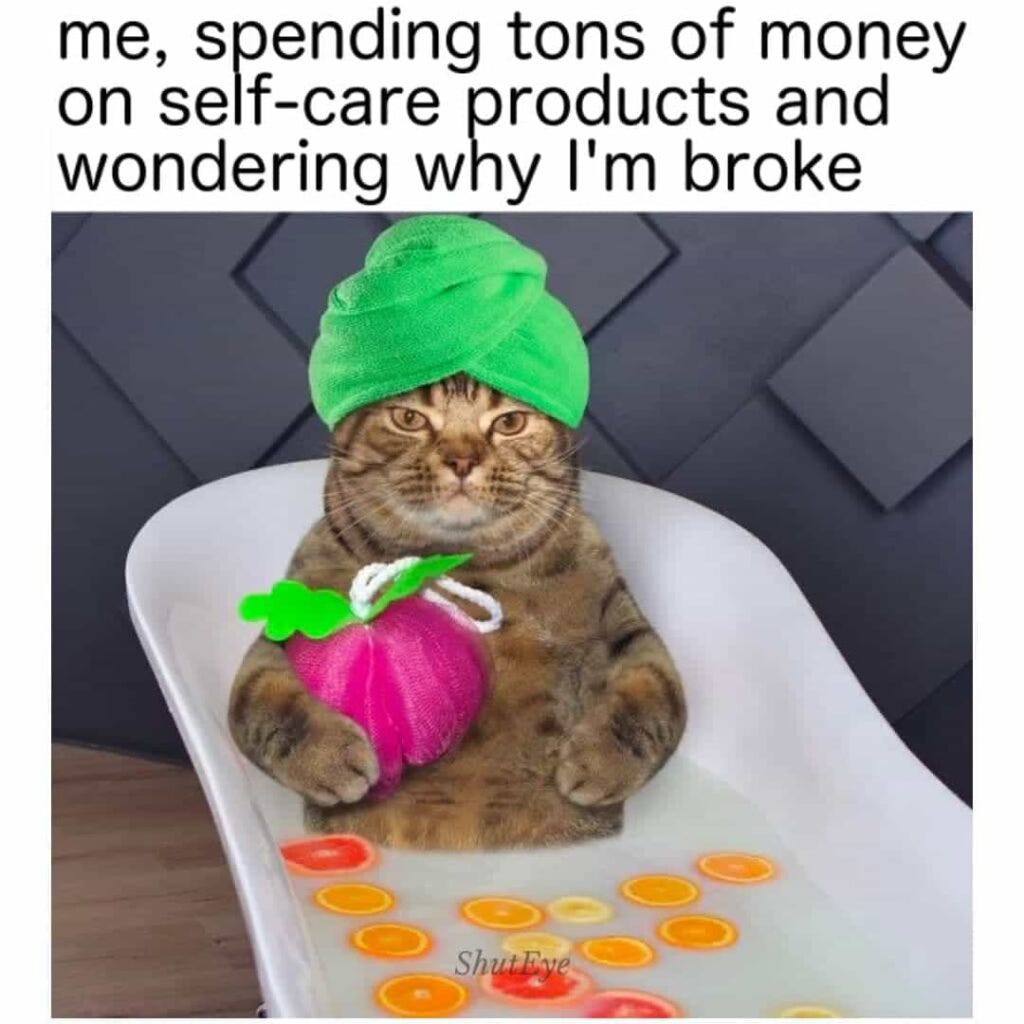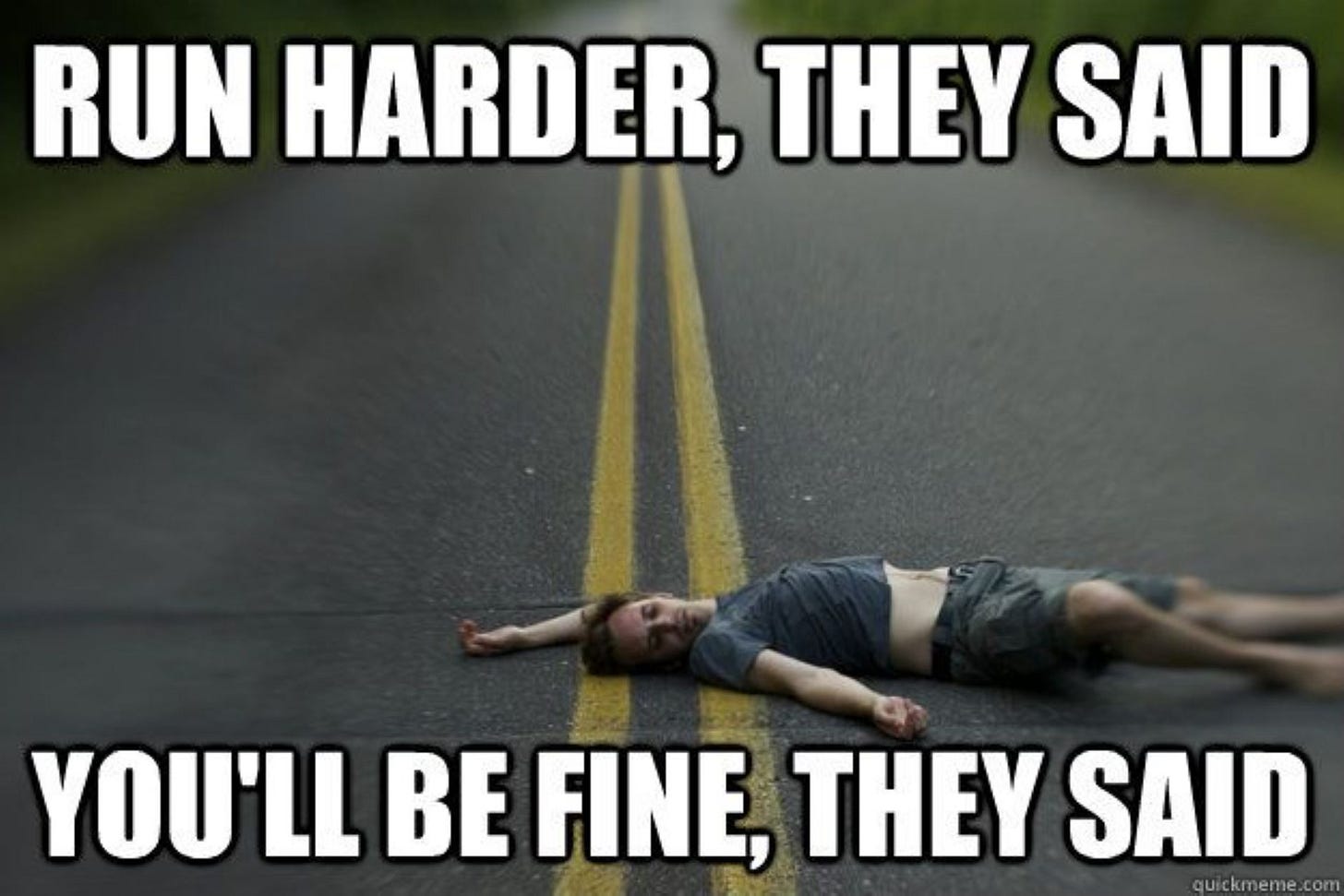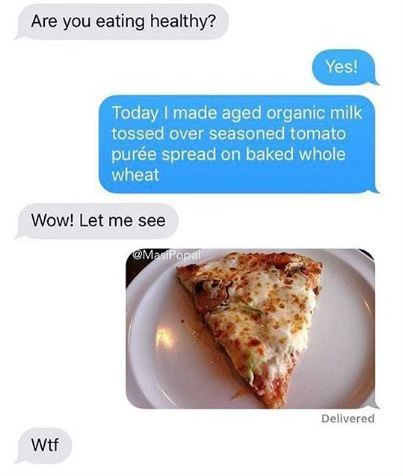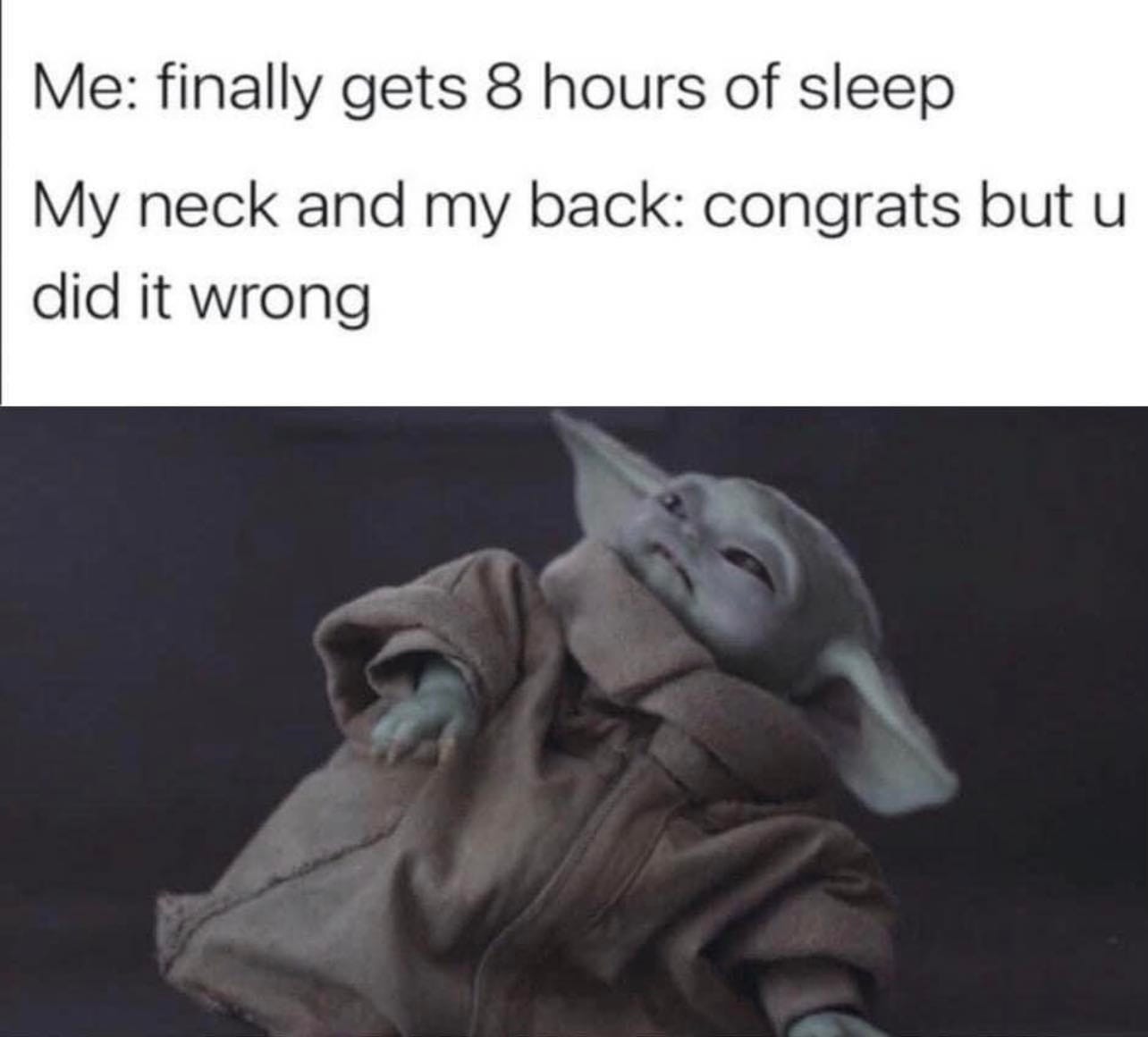Too many stakeholders in our bodies
What to do with your body when everyone tells you what you should do with it.
You should stop eating three hours before bed. It’s time to put your blue light glasses on. Say goodbye to the screens, but remember to sleep with your phone on the other side of the room. Time to spray the magnesium under your feet or even better, make a sleepy mocktail with tart cherry juice, magnesium and melatonin. Take a few drops of CBD oil to relax. When you get in bed, douse yourself in pillow sprays and lavender essential oil that tickles your nose hairs. Prep your eye mask. Straighten out the silk pillows. Hit play on the white noise. Actually, you’ve got to journal. Write your gratitudes. Write your woes. Repeat your affirmations. Rock yourself from side to side to regulate your nervous system. Meditate. Open the window just a tiny bit, as they say the ideal temperature for sleeping is 18.3 degrees celsius. Sleep with your Apple Watch or Oura Ring. It’ll keep track. Shit, you forget to put your retainers in. Tape your mouth shut to stop the mouth breathing. Switch the air purifier on. Refill the Brita.
Wake up with enough time to start your morning routine. Sleep for at least 4 consecutive hours without waking up in the night to take your basal body temperature before your first breath to either avoid pregnancy or get pregnant. Sync your thermometer with the Natural Cycles app. Avoid the snooze button. Don’t check your phone. Drink 500ml of lemon water as soon as you get up. Set intentions. Run to the window to get some natural light for the whole cortisol thing. Not before you’ve soaked your face in SPF. If not, stare into a light box. Get up in time to get your 10,000 plus steps in. Breathwork. Go for a run. Everyone runs. Eat some protein, but only after you’ve fasted. Take your list of supplements. Somatic shaking, anyone?
It’s relentless.
It’s absolutely fucking relentless.
The scourge of modern living has come back to haunt us like a weighted vest-wearing poltergeist. This extractive way of being has caused us to be so disconnected from ourselves that there seems to be a catalogue of practices, routines, rules to follow, too many damn experts and endless things to consume to get us to reconnect. You could argue that this makes it the best time to be alive, that we have all of these things at our disposal, and even if you can’t buy your way into them, someone will be available to teach you how to do it yourself.
That’s all well and cute, but it’s increasingly becoming nonsensical. This preoccupation with “health” is surrounded by so much noise, that we can no longer hear the most important voice of all, and that is our own bodies. It would be so much easier if we all had a handbook of the best things to eat, good sleep hygiene, and how to move our bodies. We’re never getting one of those because contrary to internet belief, we are all different. Different bodies. Different needs. Plus, not everyone wants to or can indeed, optimise their health. Many people are simply trying to survive.
Optimised wellness has become the private healthcare of our generation. The advice we’re being pedalled is no longer about avoiding the common cold, but about lowering your chances of getting cancer. We’re not speaking about sleep patterns as a way to feel more rested in the morning, but sleep deprivation causing weakened immune systems and negatively impacting short and long term memory. Of course, once you know the things, there’ll be a product waiting in the wings to make it easier for you to do.
For all of its language on prevention and healing, there’s a distinct undertone of fear, blame and oversimplification. If you don’t look after your body, you’ll get sick and die. Why aren’t you looking after your body, you lazy piece of shit? If you’re bloated, wake up in the middle of the night to pee, and get tired at 2:45 pm, then obviously your cortisol levels are too high, and for £333 you can pay to do some exercises to remedy that. You can be well, but it will either cost you a ton of time or even more, in money.
With broken healthcare systems, the knowledge that we’re surrounded by will undoubtedly save lives. We need to be educated to advocate for ourselves. It’s important that we know the intricacies of our bodies, so that we can best serve our bodies. When I was diagnosed with multiple sclerosis, I knew that I would only be using my NHS neurology team for my twice-a-year treatments, MRI scans and participating in any research. I knew that I needed to take an holistic approach. I went to a nutritionist, I read books, I trusted what felt right for my body, not what everyone else told me I “should” do. But, as the wellness industrial complex spirals, we can’t forget ourselves. We can’t lose our actual connection to ourselves as we search for more ways to connect to ourselves.
There's too many voices in the space who have motives that we will never truly know. The overused “I just want to help people” trope isn’t one that we can naively trust when it comes to our bodies. I’m sure if you had afternoon tea with Netanyahu and Trump, they would tell you that they think they’re helping people, they genuinely believe that. So, yeah, we need more than intention. With the proliferation of anyone with a phone and WiFi being able to share their views and advice within minutes, we’ve opened ourselves up to a highway of so-called health advice, most of which is just pretty damn awful.
In one lane we have the, “I don’t need any certification or training, because I studied at the University of Life”. You know what, for some things, that’s absolutely lovely. You do you. We know there are barriers to education, not all education is good education and you can still be educated and unethical. So, it can’t be the panacea for every single career. However, when it comes to people’s health, wellbeing and lives, then doing your due diligence and prioritising safeguarding is important. I have seen people say the wildest claims and solutions, then going to their about pages and realising they’ve just compiled a bunch of “research” from the internet. Research they’ve taken from people who have spent decades studying and most importantly, working with thousands of clients to test their theories and studies. Yet, they themselves rebuke the very thought of that same education.
This sometimes intersects with the, “I healed my (insert illness or mindset shift here) by doing (insert 5 specific things here) and if you do these 5 specific things, then you will heal it too.” This makes me want to scream into the ether, that your body is not my body, your mind is not mine, your trauma is not mine, your bank account is not mine, your will is not mine. Your life is not mine. The whole “I am proof that this works” selling tactic. When you haven’t had the education or case studies, to trial or test your hypothesis on more people than yourself, then you can’t make bold claims like that. As someone who worked in the spiritual/wellbeing space for over six years, I can’t even begin to tell you the crazy stuff I’ve heard.
This seems to be what we’re surrounded by right now, and if it’s not that, then there are also many qualified and well-trained experts who have a platform, but of course they all have varying approaches to how they do it. As our information is now so centralised, one quick scroll down your feed will offer up twenty expert’s ideas on how best to sleep, live, eat, and shit. So, what gives?
I don’t know what to do with my body anymore.
My relationship with my body is already strained, as someone with C-PTSD. I can’t follow the majority of suggestions for how best to move my body or jump in on the latest fitness trends, as my body will quite literally shut down. I can’t even sign up for all the somatic, nervous system stuff, because the majority of people sharing it, jumped on the bandwagon a few business days ago, and have bundled up something incredibly complex into a commercial easy-to-sell package.
I had lunch with my wonderful friend Ailey Jolie who is a psychotherapist and passionate about embodiment. We spoke about all of this stuff, and she reminded me of the importance of just listening to our bodies. Something my own therapist tells me every session, but I often forget as soon as I engage in the rest of the world, which loves telling me that it knows what’s best for my body. In our before and after culture, it’s easy to get swept up in someone else’s results and be seduced into following what they did to get the same.
Just last night, I saw some videos about castor oil packs and the comments were flooded with some people who claimed it helped with everything from ovarian cysts, IBS, and endometriosis, to others who got “castor oil flu” and felt really ill for a week after because of the detoxification. Every body is different. Honesty goes a long way. Yes, we can argue that as consumers it’s on us to “know better” and “do your own research”, which of course is valid, but again not everyone has the tools or literacy to do that. In a wildly unregulated space, we must have a responsibility to each other. It’s the loving thing to do.
It’s tricky, as depending on our individual relationships with our bodies, it might not be our most trusted friend to begin with. I don’t always know what’s best. I know deep down, that my body knows, but the ways in which it communicates with me, after a long time of being disconnected, sometimes feels like we’re speaking in different languages. It takes time. Time that our society isn’t always convinced that we have. Why would we we want to spend a few months checking in with our bodies each day to see how we might want to move, and look out for how we respond to the food we eat, when we’re told that we can just get a hit of Ozempic. When we can fill up our Amazon baskets with all the things we think we’ll change our lives and receive them by 10pm on the same day.
Maybe what we’re missing in this maze of advice and routines, is the space to just listen to ourselves and personalise our routines based on the uniqueness of who we are. To also know when we need to ask others who know more than us, to support us in our knowing. Whilst also being aware that not all of us will be able to access the resources to do that, so can we just be soft and have some compassion with ourselves. We’re all doing what we can do. I know that all of the things we’re being told to do, or sold to do are based on symptoms caused by modern living, but at the same time, it really ain’t that deep. Simple things work.
I’m tired of thinking about food. I’ve gone through many cycles of shame, blame and comparison about it. I haven’t eaten meat since I was 14, so most of my meals are just vegetables, but that little voice still creeps in whenever I have a cheese twist or pasta if I’m really “prioritising my health enough”. I’ve had periods of not eating dairy and gluten. One day oat milk is great, the next the girlies on TikTok are calling it starch juice. Every food is bad in someone’s story, it just depends on which stories you’re reading. I’ve done extensive inner work around it, and all I know now, is that most of the advice out there will not apply to me, based on my life experiences. Now, I will only follow any dietary plans, if a nutritionist I have worked with personally advises me based on my symptoms, lifestyle and testing my various levels. Then, I will take those recommendations to my own body and see what feels best for me.
I know that I have “work to do” in this area, but for me, it’s the mental and emotional work that needs to come first. I’m prioritising being compassionate with myself if I’m not consistent with what I eat. I’m learning to be kind to myself, and not label any foods as bad, and to work out what feels nutritious for me again. I’m trying not to see foods in this binary way of ones that will either make me lose weight or gain weight. I’m tuning out of the rhetoric that no longer correlates food in terms of weight loss, but instead of “health” but still feels focused on disordered eating, but with new language.
I’m going slow. Now, that I know how my sexual trauma has impacted what I eat and how I eat for the last twenty years, the fix isn’t in how much bread I eat or not. What I actually consume will change I’m sure, but right now, I need to do the daily work of letting my body know that it’s safe to trust me. I am choosing to be in conversation with my body, without anyone else’s input. One week pilates is going to save the world. The next it’s the Stairmaster. Apparently your life changes on the day you get a gym membership, and you’ll love running so much that it becomes your entire identity. I don’t feel particularly safe or overjoyed doing any of those, despite the scrolls of benefits they’re supposed to extol. All I know is that I enjoy walking, yoga and dancing. I know that self touch is as soothing and healing for me as dripping in sweat. I’m going to keep trusting that.
This week, I found an amazing woman online called Caroline Cray. She has mast cell activation and a host of severe allergies, so she can only eat oats and hypoallergenic baby formula. That’s all. Along with a huge amount of medications, that’s what is keeping her alive. That’s why stories are important. Other people’s stories give us perspective and insight in ways that we once couldn’t fathom. I left her videos feeling incredibly inspired by her optimism and creativity. I felt grateful that I have an abundance of food that I can safely eat, tastes delicious and find untold pleasure and joy in. It made me think of this one size fits all advice, that shouts at us about how obvious it is that we should all eat vegetables and judge those who don’t. Not every body can eat vegetables. Every body doesn’t thrive on oats or intermittent fasting. We need individualised approaches, advice and care, and the online wellness and health spaces rarely allow for that.
We have enough shoulds to contend with in our human existence. Social norms have expectations of us, and only we can break them. There’s enough pressure on us in all areas of our lives, so the one place we need to be a balm for all of that, can’t also have its own pressures. While I don’t believe that we are only these fleshy physical beings, we are also emotional, mental and spiritual too; our bodies need us more than ever, and boy does the internet know it.
I hope we can move towards a less transactional way of relating to our bodies. Where the only stakeholders are ourselves, and we feel confident about our literacy in our own bodies’ needs, and have access to unbiased resources on how we can even get started with that process of re-education. I would love to see more voices in this space, having a gentleness that might simply say, “this might not be for you”, or “try this and see how you feel” instead of blanket statements that suggest it might be for the masses.
Most of all, I hope we can all just be a bit more loving to ourselves. Because, being an adult really is fucking relentless, so it’s okay if you don’t have a comprehensive morning or night routine. It’s okay if you don’t have fitness trackers and ashwagandha supplements. It’s okay if you don’t know what the hell to do with your body, because maybe it’s good enough for right now, to just be in it and listen to it. What else that needs to come, will come.












This is just so poignant and needed now more than ever. The reminder that our stories are not someone else’s stories is just so liberating. Thank you for your vulnerability, truth and brilliantly constructed sentences 💕
Gosh I have such feelings about this. All these orders we should follow, all these extra ways for us to fail and shame ourselves.. And all of it still inside a patriarchal model of looking to outside sources to tell us what to with our bodies. As always, grateful for your voice G. ❤️(also “they jumped on the bandwagon a few business days ago” is a heavenly sentence 😂)